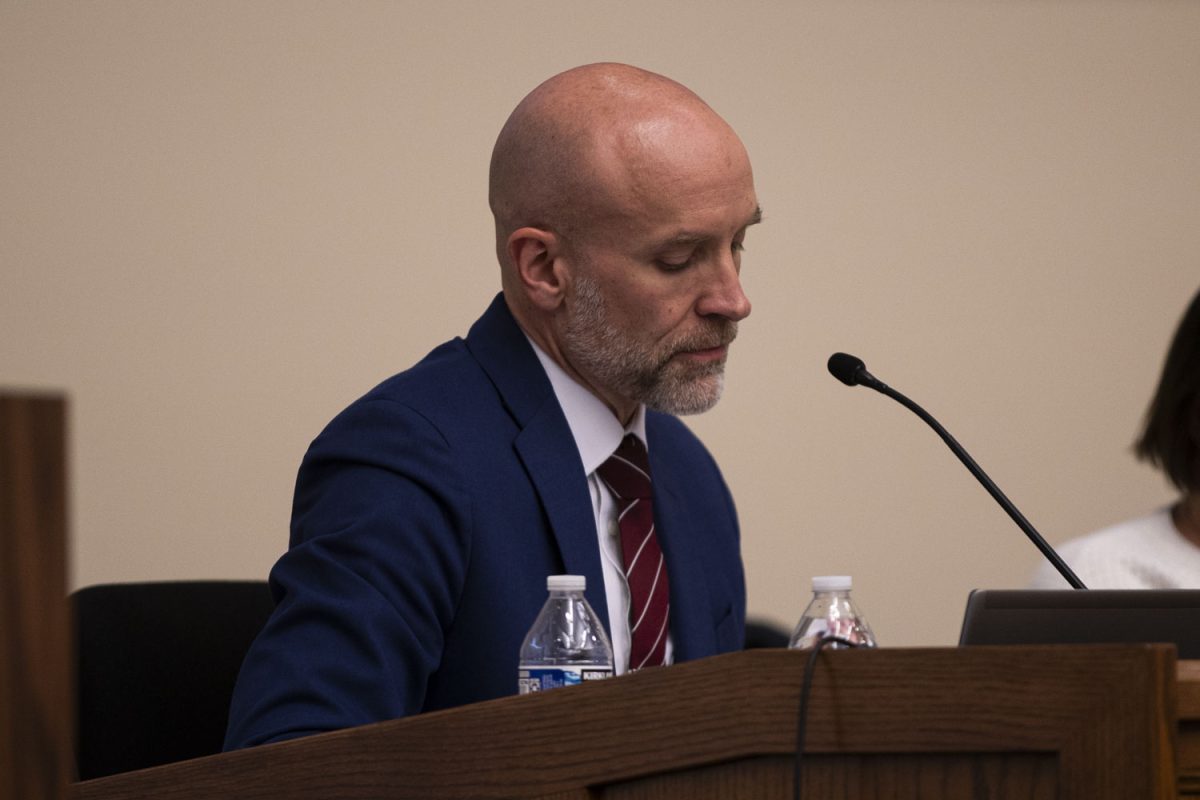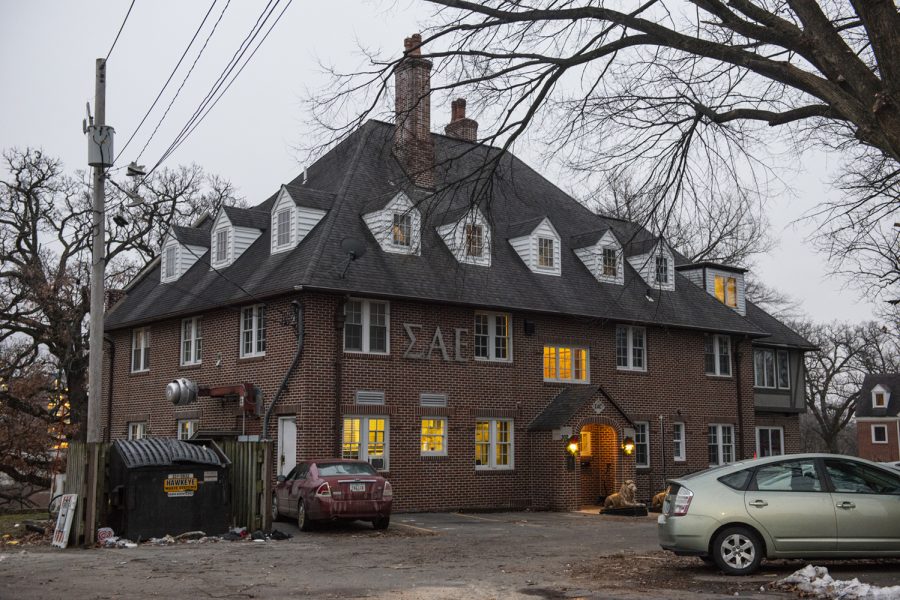A form of authoritarian government thought to be long gone may be in the midst of a revival.
By Jake Markowitz
Fascism may be experiencing a comeback in Europe, at least according to one expert.
Robert Paxton, the Mellon Professor Emeritus of Social Sciences at Columbia University, held a public lecture at the University of Iowa on Tuesday discussing the revival of what was thought to be an obsolete form of government.
In introducing Paxton, UI Associate Professor Rosemarie Scullion noted the rapid spread of fascism.
“Here we are,” Scullion said. “Far-right movements are now rocking the contemporary political world in France, Germany, Austria, Greece, Hungary, Denmark, Finland, the Netherlands, Great Britain, Slovenia, Poland, and yes, even here at home.”
Scullion noted that the sudden rise of fascism has affected the day’s speaker.
“In his capacity as public intellectual, he is now being called upon by many journalistic venues, in numerous culture sites, to speak to growing concerns that we are witnessing a frightening growing phenomenon that much of the contemporary world thought had long been relegated to the dustbin of history,” Scullion said.
The far-right movements that she touched on are not sitting in the background, as many members of these parties could potentially become leaders of their country in the near future.
“In many European countries, far-right parties are becoming stronger and might even win the office of president,” Paxton said in an email to the Daily Iowan. “In Austria, the candidate of the Austrian Freedom Party, a far-right party, is facing a run-off election for president of Austria on Dec. 4.”
Fascism has claimed countries such as Austria in the past, but what makes this return even more frightening for the renowned historian is the spread of fascism into normally democratic countries, he said.
“There are growing neo-fascist parties in usually calm democratic countries such as Denmark and Sweden, and in Finland the far-right True Finns are part of the governing coalition,” Paxton said. “The main reasons for this growth are the massive surge of refugees from the Middle East and Africa into Europe, and violent attacks by Islamic terrorists upon civilians in European cities, neither of which can really be controlled at present in Europe.”
While fascist movements have advanced in European countries, the United States is not shielded from the expansion of authoritarian government.
“In the United States, Donald Trump has used appeals to nationalism and expressed strongly negative views of Muslims and Mexicans, and less directly, of African Americans, and he has threatened to take actions as president (such as locking up Hillary Clinton, if elected) that would only be permitted in a dictatorship,” Paxton wrote in an email.
The lecture proved to be another lesson showing the importance of remembering the past, some attendees said.
“I thought Professor Paxton’s evaluation of contemporary politics in light of the history of fascism was intriguing,” UI junior Joe Steinbronn said. “It served to show how valuable it remains to study history.”







